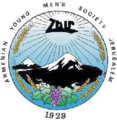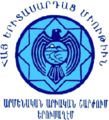
Scouting, also known as the Scout Movement, is a worldwide youth social movement employing the Scout method. It is a program of informal education with an emphasis on practical outdoor activities, including camping, woodcraft, aquatics, hiking, backpacking, and sports. Another widely recognized movement characteristic is the Scout uniform, by intent hiding all differences of social standing in a country and encouraging equality, with neckerchief and campaign hat or comparable headwear. Distinctive uniform insignia include the fleur-de-lis and the trefoil, as well as merit badges and other patches.

The Armenian genocide was the systematic destruction of the Armenian people and identity in the Ottoman Empire during World War I. Spearheaded by the ruling Committee of Union and Progress (CUP), it was implemented primarily through the mass murder of around one million Armenians during death marches to the Syrian Desert and the forced Islamization of others, primarily women and children.

The Young Turks formed as a constitutionalist broad opposition-movement in the late Ottoman Empire against the absolutist régime of Sultan Abdul Hamid II. The most powerful organization of the movement, and the most conflated, was the Committee of Union and Progress, though its goals, strategies, and membership continuously morphed throughout Abdul Hamid's reign. By the 1890s, the Young Turks were mainly a loose and contentious network of exiled intelligentsia who made a living by selling their newspapers to secret subscribers.

The Armenian Revolutionary Federation, also known as Dashnaktsutyun, is an Armenian nationalist and socialist political party founded in 1890 in Tiflis, Russian Empire by Christapor Mikaelian, Stepan Zorian, and Simon Zavarian. As of 2023, the party operates in Armenia, Lebanon, Iran and in countries where the Armenian diaspora is present. The party was also active in Artsakh until the Azerbaijani offensive in September 2023. Although it has long been the most influential political party in the Armenian diaspora, it has a comparatively smaller proportional presence in modern-day Armenia. As of October 2023, the party was represented in two national parliaments, with ten seats in the National Assembly of Armenia and three seats in the Parliament of Lebanon as part of the March 8 Alliance.

The Social Democrat Hunchakian Party (SDHP), is the oldest continuously-operating Armenian political party, founded in 1887 by a group of students in Geneva, Switzerland. It was the first socialist party to operate in the Ottoman Empire and in Iran, then known as Persia. Among its founders were Avetis Nazarbekian, Mariam Vardanian, Gevorg Gharadjian, Ruben Khan-Azat, Christopher Ohanian, Gabriel Kafian, and Manuel Manuelian. Its original goal was attaining Armenia's independence from the Ottoman Empire during the Armenian national liberation movement.
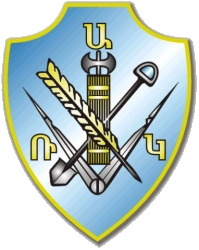
The Armenian Democratic Liberal Party, the Ramgavar Party,, also known by its Armenian initials or its English initials ADL is an Armenian political party in the Armenian diaspora including the Middle East, Europe, the Americas and Australia.

The Hanrapetutyun Party is a pro-European political party in Armenia. The party was founded by ex-members from the Republican Party of Armenia and members of the Yerkrapah Volunteer Union: Aram Sargsyan, Albert Bazeyan, Vagharshak Harutiunyan, Ara Ketikyan, among others, in April 2001.

The Young Turk Revolution was a constitutionalist revolution in the Ottoman Empire. Revolutionaries belonging to the Internal Committee of Union and Progress, an organization of the Young Turks movement, forced Sultan Abdul Hamid II to restore the Constitution, recall the parliament, and schedule an election. Thus began the Second Constitutional Era.
Traditional Scouting is "old-fashioned" or "back to basics" Scouting in some form, often with an emphasis on woodcraft and scoutcraft activities. As a pluralist movement, there is no one set definition for the term, but most traditionalists share a common set of values and procedures. Traditionalists aim to return the Scout Movement to something approximating its original style and activities; rejecting the trend of modernizing the program in an attempt to widen its appeal and/or use the name "Scouts" for new programs for ever-younger children.
Homenetmen is a pan-Armenian diaspora organization devoted to sport and scouting. The motto of Homenetmen is "Rise and Raise".
The Armenian national movement included social, cultural, but primarily political and military movements that reached their height during World War I and the following years, initially seeking improved status for Armenians in the Ottoman and Russian Empires but eventually attempting to achieve an Armenian state.
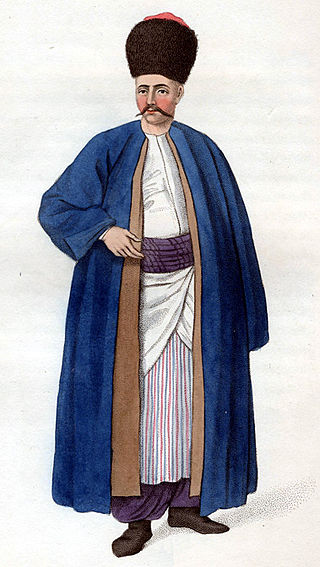
Armenians were a significant minority in the Ottoman Empire. They belonged to either the Armenian Apostolic Church, the Armenian Catholic Church, or the Armenian Protestant Church, each church serving as the basis of a millet. They played a crucial role in Ottoman industry and commerce, and Armenian communities existed in almost every major city of the empire. The majority of the Armenian population made up a reaya, or peasant, class, in Eastern Anatolia. The Tanzimat reforms in the nineteenth century sought to manifest the doctrine of equality before the law. Despite their importance, Armenians were persecuted by the Ottoman authorities, especially from the latter half of the 19th century, culminating in the Armenian Genocide.
The Scout and Guide movement in Armenia is served by
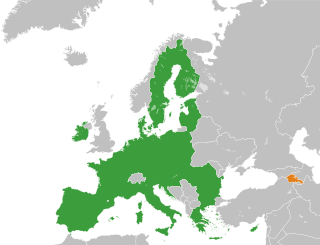
Armenia and the European Union have maintained positive relations over the years. Both parties are connected through the Comprehensive and Enhanced Partnership Agreement (CEPA), which was signed in 2017. Former Armenian foreign minister Eduard Nalbandyan expressed confidence that the new partnership agreement would "open a new page" in EU–Armenia relations. Meanwhile, the former High Representative of the Union for Foreign Affairs and Security Policy, Federica Mogherini concluded in June 2019, that Armenia–EU relations are on an "excellent" level. Should either Georgia or Turkey, who are candidates for EU membership, accede to the EU, Armenia will border the European Union.
There are roughly 1,000 Armenians currently living in Mainland China and Hong Kong.

Women in Armenia have had equal rights, including the right to vote, since the establishment of the First Republic of Armenia. On June 21 and 23, 1919, the first direct parliamentary elections were held in Armenia under universal suffrage - every person over the age of 20 had the right to vote regardless of gender, ethnicity or religious beliefs. The 80-seat legislature, charged with setting the foundation for an Armenian state, contained three women deputies: Katarine Zalyan-Manukyan, Perchuhi Partizpanyan-Barseghyan and Varvara Sahakyan.

Nado Khdoi Makhmudov (1907–1990) was a Kurdish writer and public figure of the Soviet Union.

The Ottoman Committee of Union and Progress was a revolutionary group, secret society, and political party, active between 1889 and 1926 in the Ottoman Empire and in the Republic of Turkey. The foremost faction of the Young Turks, the CUP instigated the 1908 Young Turk Revolution, which ended absolute monarchy and began the Second Constitutional Era. After an ideological transformation, from 1913 to 1918, the CUP ruled the empire as a dictatorship and committed genocides against the Armenian, Greek, and Assyrian peoples as part of a broader policy of ethnic erasure during the late Ottoman period. The CUP and its members have often been referred to as "Young Turks", although the Young Turk movement produced other Ottoman political parties as well. Within the Ottoman Empire its members were known as İttihadcılar ('Unionists') or Komiteciler ('Committeemen').
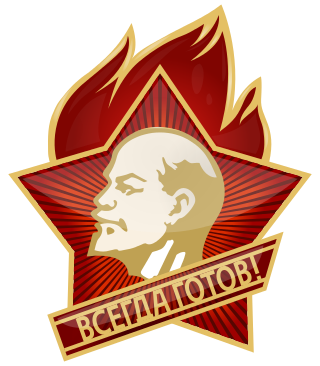
The Vladimir Lenin All-Union Pioneer Organization, abbreviated as the Young Pioneers, was a youth organization of the Soviet Union for children and adolescents ages 9–14 that existed between 1922 and 1991.
